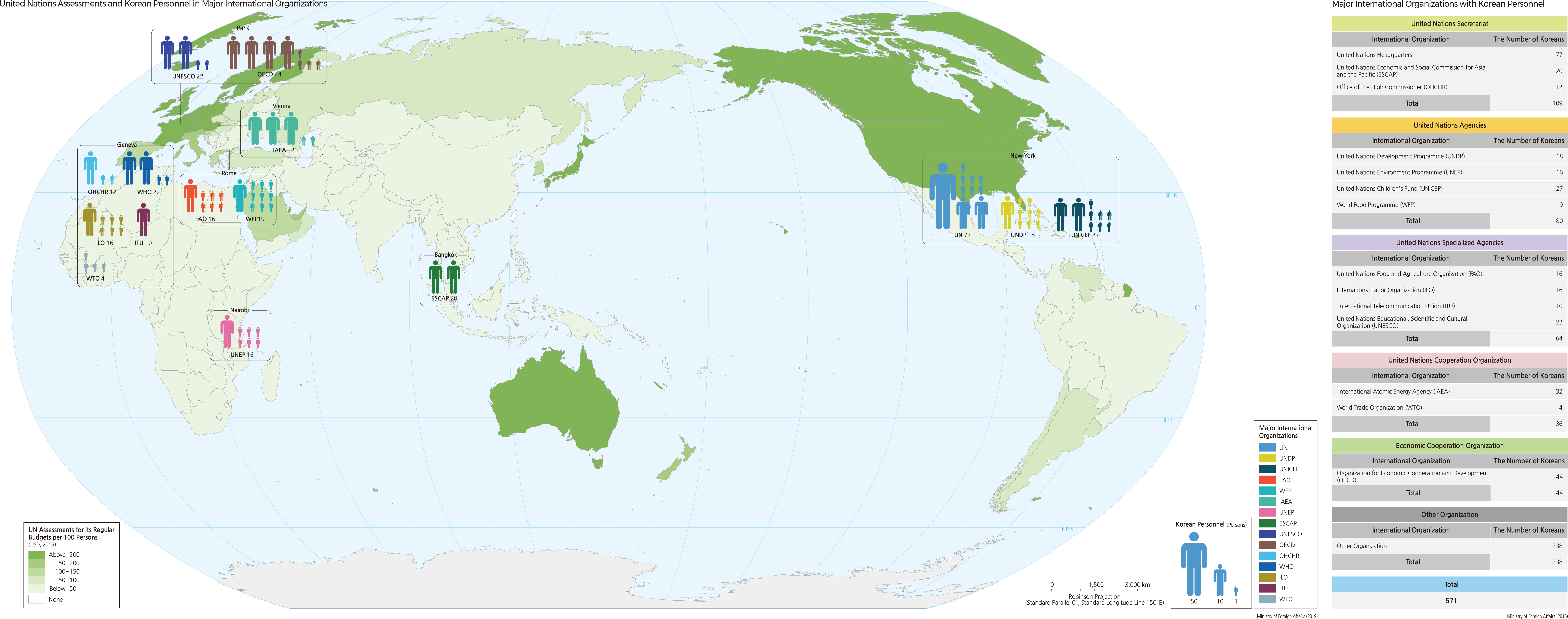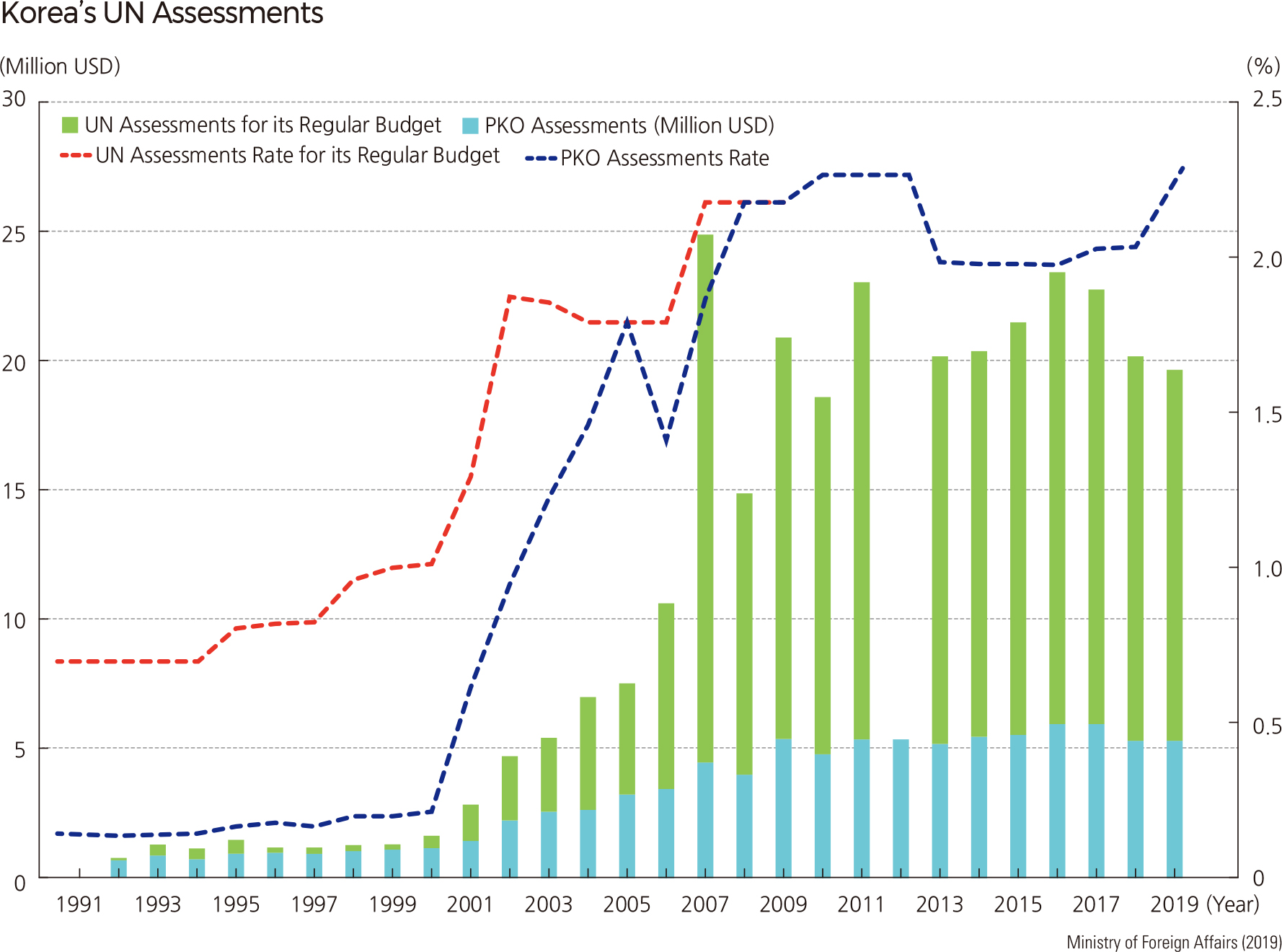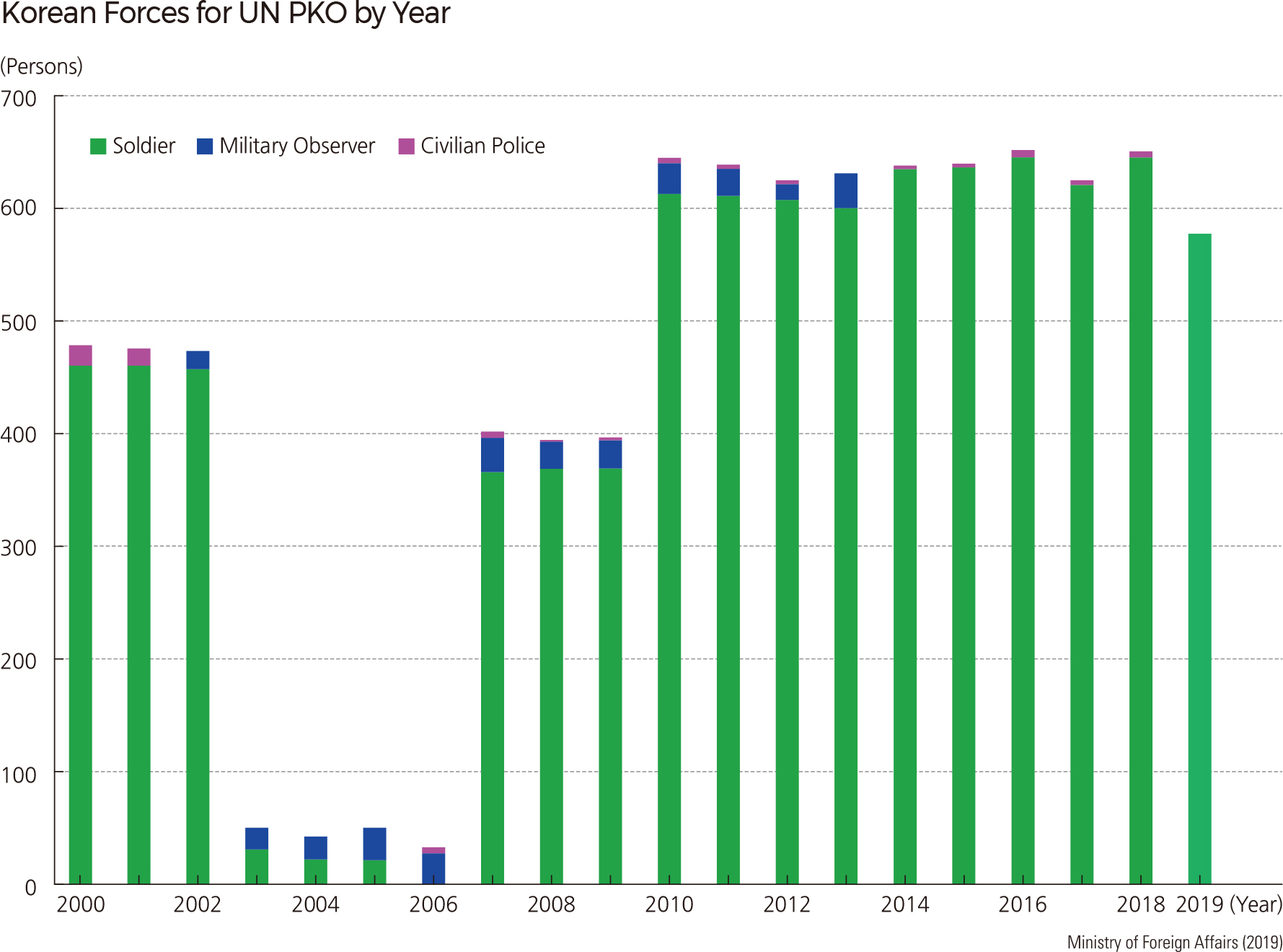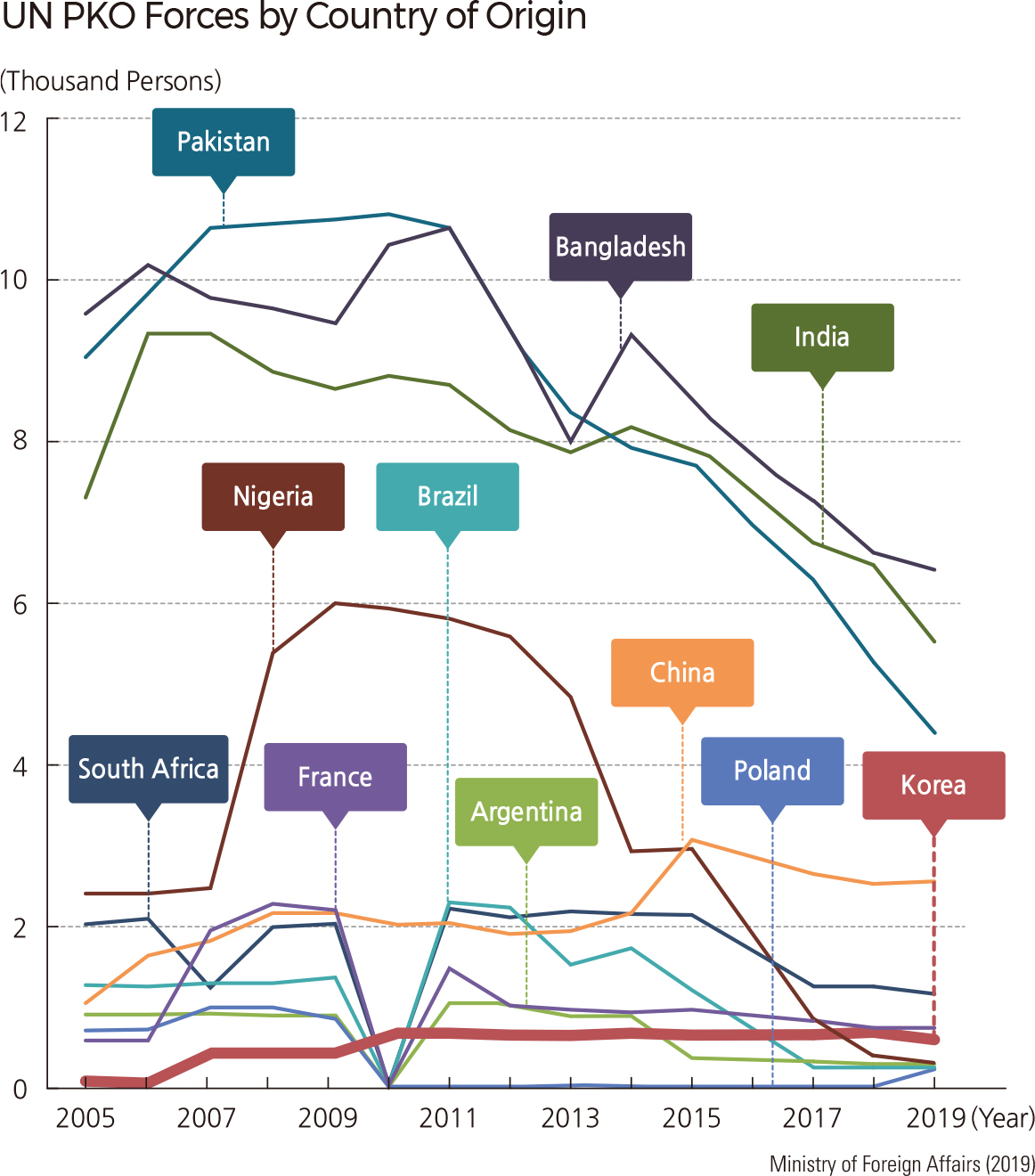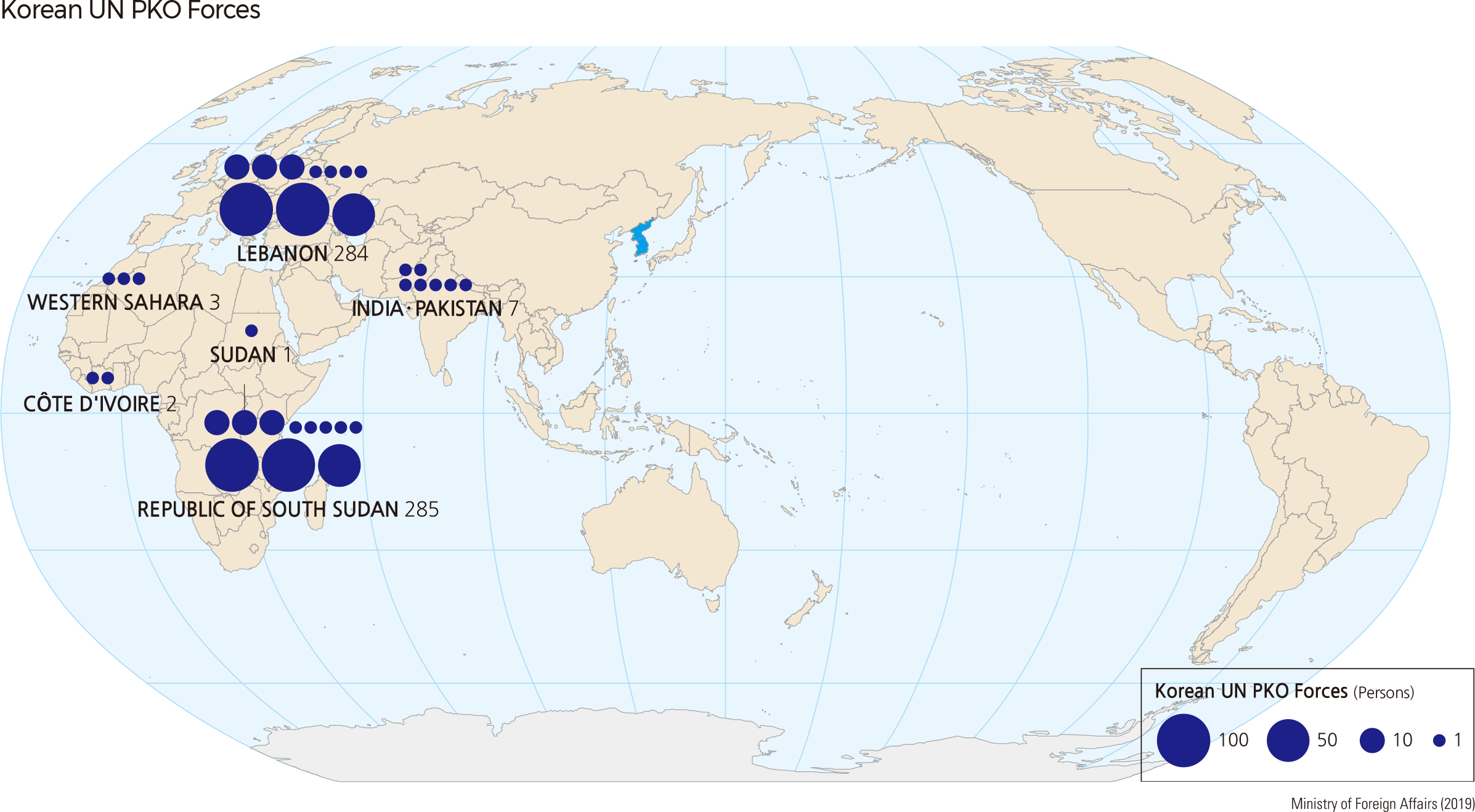English I 2019
Korea, as a UN member, has contributed to the UN Regular Budget that is revised every two years and approved by the UN General Meeting. The UN relies on the assessments of its member countries for the regular budget. The assessments rate, assigned to each member country, is directly proportionate to its Gross National Income. In the event that a country has foreign debts, the assessment may be lowered by the amount of redemption. The assessment rate cannot exceed 22% or fall below 0.001%. The rate is revised every three years by a committee comprised of 18 countries. Alongside its economic growth, Korea’s assessment rate increased, from 0.69% in 1990 to 2.267% in 2019.
The map also shows Korean citizens who are engaged in international organizations headquartered in foreign cities. In 2013, hundreds of Koreans were working for a variety of international organizations such as the UN Headquarters, the International Atomic Energy Agency (IAEA), the Organization for Economic Cooperation and Development (OECD), and the World Health Organization (WHO), which has headquarters in New York, Vienna, Paris, and Geneva. The table shows Korean citizens in leadership positions in international organizations with a focus on the UN.
Korea actively participates in the UN Peace Keeping Operations (PKO), plays a role in alleviating disputes around the world, and protects human rights. As of 2019, 580 Korean peacekeeping forces were dispatched to seven different missions: 284 in Lebanon, 285 in South Sudan, seven in India and Pakistan, three in the Western Sahara, and one in Sudan’s Darfur. They work for stability operations, truce supervision, and rebuilding. Korea is ranked 11th, with 2.267% of the PKO assessment rate in 2019. |
